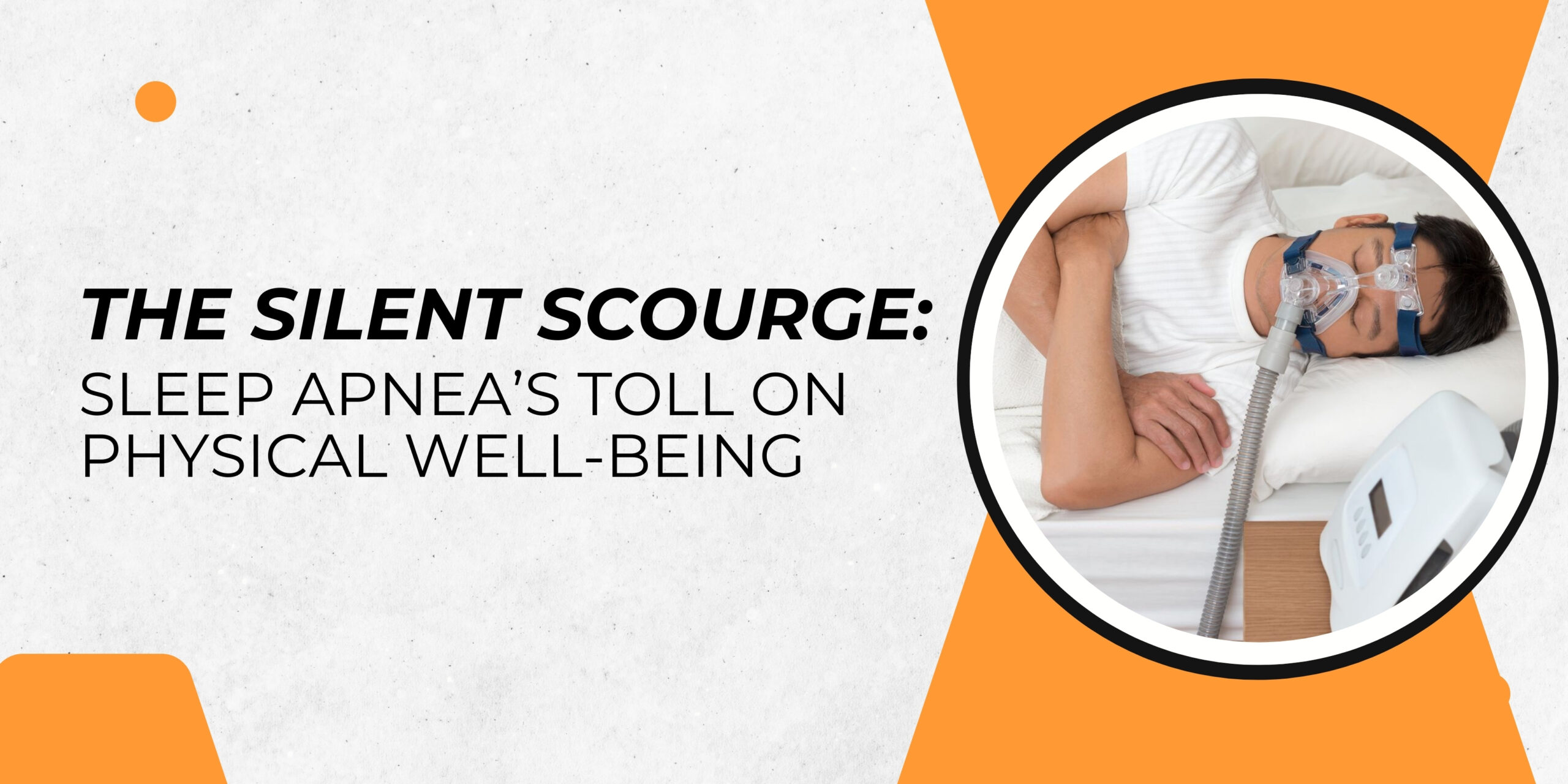Introduction:
Often lurking in the shadows, sleep apnea remains one of the most underdiagnosed and insidious conditions. Left untreated, its consequences on physical health can be profound. This article aims to shed light on this silent enemy, diving deep into how sleep apnea can impact your physical well-being.
Sleep Apnea Unveiled:
At its core, sleep apnea is a condition where breathing stops intermittently during sleep. The most common type is obstructive sleep apnea, caused by the throat muscles relaxing excessively. It interrupts regular breathing patterns, leading to various health complications.
How Sleep Apnea Affects Physical Health
- Heart Disease: Sleep apnea is a condition associated with various cardiovascular problems, such as high pressure of blood, fibrillation, atrial, and heart attacks. Constantly waking up at night can trigger hormone systems to become dysfunctional and result in an increase in the heart rate as well as blood pressure.
- Typ 2 diabetes: There is a significant relationship between sleep apnea and Type 2 Diabetes. The continuous disruption of sleep patterns can alter the resistance to insulin.
- Obesity: Sleep apnea is often associated with being overweight. The excess weight, particularly on the neck, may cause breathing problems.
- Liver Issues: People suffering from this condition might suffer from liver scarring, which points to possible liver function abnormalities.
- Impaired Immune Function Chronic sleep can damage your immune system, making the person more vulnerable to infections.
- Daytime fatigue This could result in accidents, inattention, and decreased productivity.
Treatment Options
- CPA (Continuous Positive Airway Pressure): This device pumps air in a mask to ensure that the airways remain open. It is the most commonly used treatment for severe to moderate cases.
- Lifestyle modifications, weight loss, therapy for the position (changing sleeping places), and abstaining from drinking are all beneficial.
- Surgery In extreme cases, when other treatment options fail, surgery options such as tonsillectomy or jaw-repositioning may be considered.
10 FAQs on Sleep Apnea
What are the main signs that are associated with sleeping Apnea?
- Snoring loudly, having trouble breathing at night, excessive daytime fatigue, and anger are typical signs.
Does snoring necessarily indicate that you have sleeping Apnea?
- Snoring can be a sign of something; not every person who snores suffers from sleep apnea.
How is sleep apnea diagnosed?
- It is usually diagnosed through an examination of sleep or a polysomnogram conducted at the sleep centre.
Do children have insomnia?
- Although it’s more common among adults, children too can be affected, usually due to an increase in the size of their tonsils or Adenoids.
Does sleep apnea have a connection to health issues in the mind?
- Untreated sleep apnea may cause depressive symptoms, irritability, and cognitive issues.
Does losing weight cure sleep apnea?
- Weight loss can dramatically decrease or eliminate symptoms for certain people.
Does there exist a connection between sleep acid reflux and sleep apnea?
- Certain studies suggest a connection, but it’s unknown what causes one or the other or if they occur frequently.
Are there natural solutions against sleeping Apnea?
- Lifestyle modifications like losing weight, sleeping on the side, and not drinking before night can be helpful.
What exactly is CPAP therapy performed?
- It ensures that the airway remains open by constantly delivering controlled air pressure. It prevents Apneas from forming.
Surgery is a typical treatment alternative.
- Surgery is typically looked at when other options are ineffective, or there is an anatomical cause for the Apnea.
Conclusion :
The silent menace of sleep apnea demands our immediate attention. It’s not only about restless nights or snoring. The impact it has on your physical health could be extensive. Early detection, awareness, and the proper intervention are essential in limiting its adverse effects on our overall health.
By diving deep into this topic, we want to elevate awareness about the silent dangers of sleep apnea. If you or someone you know is showing symptoms, seeking medical attention is paramount. With the proper knowledge and treatment, one can mitigate risks and improve overall health.

